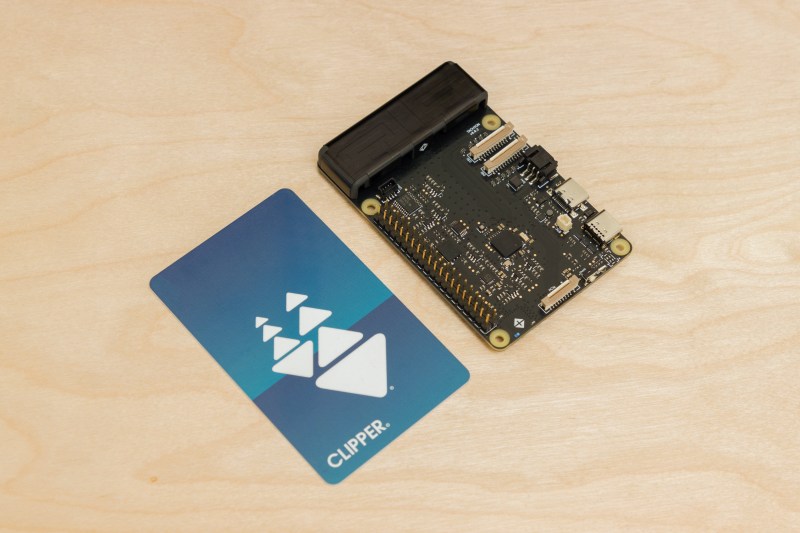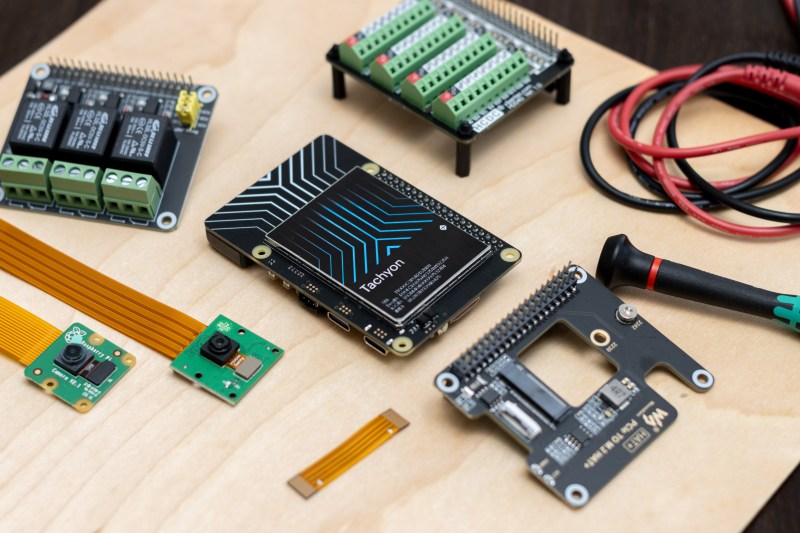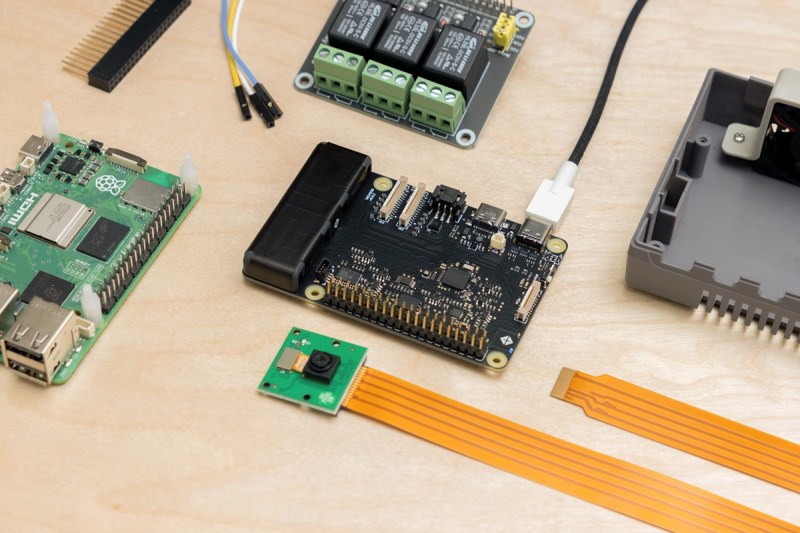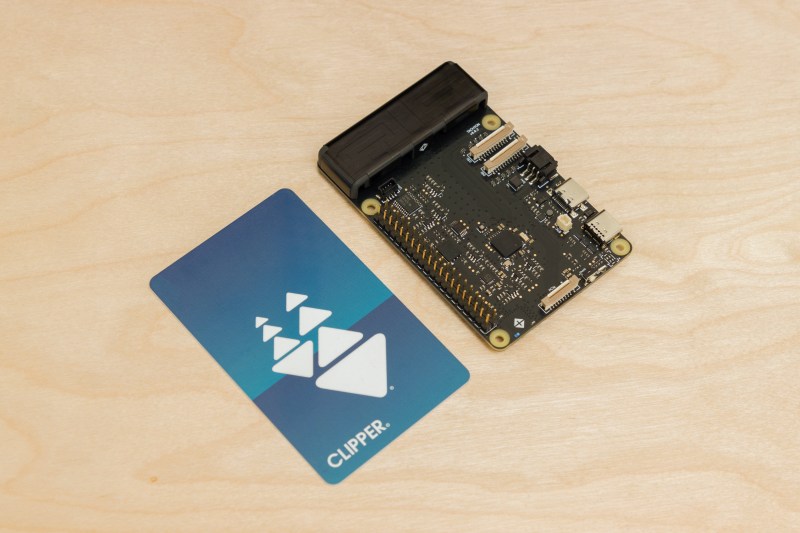Particle has launched Tachyon, its first Qualcomm Snapdragon-powered single-board computer (SBC) designed to make cutting-edge chipsets and AI tooling widely accessible to consumers and businesses.
The 5G device is available for pre-order via a Kickstarter crowdfunding campaign for $149, and it is compatible with Raspberry Pi’s ecosystem.
Zach Supalla, CEO of Particle, said in an interview with GamesBeat that Tachyon brings the power of a modern smartphone to the far corners of the world with speedy hardware, a powerful AI accelerator, built-in high-bandwidth 5G and Wi-Fi 6E connectivity, and a Linux-powered Ubuntu operating system. By providing a complete edge-to-cloud infrastructure, Particle enables customers to focus on what matters most: their application.
Tachyon is a kind of extension for Particle, which has been around for 10 years and is an internet of things edge-to-cloud infrastructure provider.
Lil Snack & GamesBeat
GamesBeat is excited to partner with Lil Snack to have customized games just for our audience! We know as gamers ourselves, this is an exciting way to engage through play with the GamesBeat content you have already come to love. Start playing games now!
“The way our business works is we make very easy to use development kits for prototyping,” Supalla said. Customers start prototyping on the platform and then scale it up as they launch a full business.
“We’ve been living in microcontroller land for a while with sensors and controls, things like that. We’re about to launch our first microprocessor-based product, a single board computer called the Tachyon,” Supalla said. “The basic premise of it is we’re entering the world of Raspberry Pi, where low cost, single-board computers are useful for a lot of different applications.”
Particle saw an opportunity in systems that are even more powerful and are built around 5G wireless, GPUs and AI accelerators that can do machine learning applications like computer vision.
“We are essentially are taking the tech of a Qualcomm Snapdragon smartphone and packaging it up with a bunch of Linux and connectivity and cloud services to make it easy for folks to build IoT products that are smartphone equivalent in terms of their capabilities,” he said.
A surge in AI demand
The demand for AI-enabled edge solutions is exploding in today’s technology landscape, driving the need for powerful devices and platforms to manage these fleets. Rich peripherals, robust AI and graphics accelerators, and wireless connectivity make up some of the device requirements, powered by open-source software and a vibrant development community, Supalla said.
“Any engineer or technically minded person should have access to the building blocks of a modern smartphone, but that’s not the case right now,” said Supalla. “5G connectivity and AI accelerators are limited today because they’re not democratized; only a few large players have access to the bleeding-edge technology that will power the next wave of connected devices. Exploration is the beginning of the innovation cycle, and we want Tachyon to enable that spark of imagination to take root.”
San Francisco-based Particle is known for pioneering accessible IoT products and tools, starting 10 years ago with its record-breaking Kickstarter projects for the Spark Core and the Electron. The company now powers hundreds of connected products from household-name brands like Jacuzzi (which makes, yes, a smart Jacuzzi), Trek, and Anytime Fitness.
Today, Particle is introducing a new line of IoT modules, starting with Tachyon, a device that can handle AI/ML workloads while supporting broad-base wireless connectivity, all at an affordable price.
This Raspberry Pi-compatible SBC makes it possible for anyone — whether shipping at scale or for personal use — to create remotely-deployed AI-enabled IoT products. This kind of capability has previously only been available to smartphone and PC manufacturers and wasn’t readily available to the average person or business.
Particle’s new Linux-based SBC is the IoT module that can handle it all. Powered by a Qualcomm Snapdragon system on a chip (SoC), Tachyon marries the speed and efficiency of modern computing with the limitless range of high-bandwidth wireless connectivity, all in a compact footprint.
It has an Qualcomm Snapdragon platform with an eight-core Kryo CPU (1x 2.7GHz, 3x 2.4GHz, 4x 1.9GHz).
And it comes with robust connectivity out of the box, with 5G cellular connectivity and Wi-Fi 6E with on-device antennas. The little box has AI and graphics accelerators, including a 12 TOPS NPU and Adreno 643 GPU. The storage includes 4GB RAM and 64GB built-in (UFS) flash storage.
It’s computer vision ready with 2 x CSI 4-lane with ISP, supporting 20+ different camera sensors (e.g. IMX519, OV13850) up to 25MP. And it has broad peripheral compatibility with USB-C 3.1 PD with DisplayPort, 1 x 2-lane PCIe Gen 3 (NVMe compatible), and DSI 4-lane up to 1200×2520 resolution.
And it has External power and built-in battery support, powered by USB-C, DC input or lithium-ion battery with a built-in battery charger.
Built for modularity

Tachyon’s credit card-sized form factor is designed with modularity in mind. USB-C ports provide connectivity to a wide ecosystem of cameras, displays, and sensors, and the integrated antennas provide a plug-and-go experience from initial setup through commercial deployments. Power can be provided by USB or built-in lithium-ion battery support.
The company’s mix of products is eclectic, as the products range from a smart hot tub to methane emission monitoring in oil and gas industries. It has gadgets built into E-bikes and E-scooters, and you can find its applications in healthcare, agriculture and more. These small computers can be placed on lobster fishing boats to make sure the are complying with fishing regulations.
Supalla said he admired Raspberry Pi because it had low prices and built a lot of community around its products and that has helped it get very popular. But his company saw a gap in the market with slightly more powerful systems and systems with strong cellular connectivity.
“There’s a gap for cellular single-board computers,” he said. “A lot of applications are remote, where you deploy something out into the world. That’s a big part of what we focus on.”
Supalla said the company also focuses on providing a great Linux software experience built on Ubuntu, which is the same version of Linux that Raspberry Pi provides. But Particle aims to differentiate based on its cloud service, which handles tasks like telemetry, over the air software updates, remote monitoring of devices out in the field, connectivity management, and other DevOps infrastructure.”
AI at the edge

Supalla acknowledged that the more powerful AI PCs being announced now can do up to 55 TOPS and are running local large language models. But for IoT, he said the silicon for local LLMs is very expensive and IoT devices can strike a balance between local processing and the cloud. IoT apps focus around computer vision, audio classification, natural language processing — which benefit from having a good AI accelerator, but don’t require the same level of processing power that an LLM would.
Some of this is new territory for Particle, which is a connected microcontroller and embedded systems company.
“This will be our first entry into the single board computer land. And I think for a lot of folks that this will be the first time they’ve heard of us,” Supalla said.
The Kickstarter ends in 30 days and the company aims to be shipping in January.
A new market

I asked about how powerful the 12 TOPS AI processor would be. He replied, “I think that the silicone wars around AI are just starting. There are going to be increasingly competitive dynamics around AI accelerators. And that’s where Moore’s Law makes gains now. We’re at the very beginning of that. It’s going to lead to another wave for the internet of things.”
This is actually the company’s third Kickstarter campaign. When it did its earlier campaigns in 2015 and 2013, the company’s name was Spark. Now the company has about 100 people.
“It’s been nine years and so this is like coming back home for us,” he said.
Source: bing.com



